Designer Hussain Rehar denies plagiarism accusations against his clothing line, 'Jugnu'
Artists Alisha Yazdani claims Rehar 'stole' her work after initially proposing a collaboration
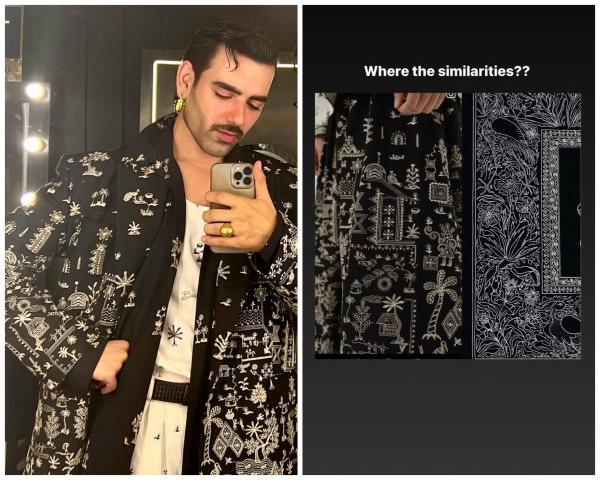
Renowned atelier Hussain Rehar recently found himself in a controversy, accused of plagiarism by artist Alisha Yazdani, the proprietor of Kook Studio, an online store. The allegations surfaced when Yazdani claimed in an Instagram post that Rehar had allegedly 'stolen' her work for his latest clothing line, Jugnu, after initially proposing a collaboration.
According to Yazdani, discussions about a collab took place, but it did not materialize. However, she later noticed striking similarities between her own work and Rehar's Jugnu line. Both designs featured a black background with elements like birds, flora, fauna, and traditional patterns in white.
Sharing a video on her Instagram, juxtaposing his work against her own, she wrote in the caption, “While I was in the process of finishing my own clothing line based on my colour palette (white on black) and my illustrations, I hear of this launch. How disheartening to live in a place where there is no concept of accountability and intellectual property rights. Please share if you feel the same.” Yazdani later added, “Edit: I never provided any of my work after negotiations fell through post meeting him. Months later I see a whole line replicating my work.”
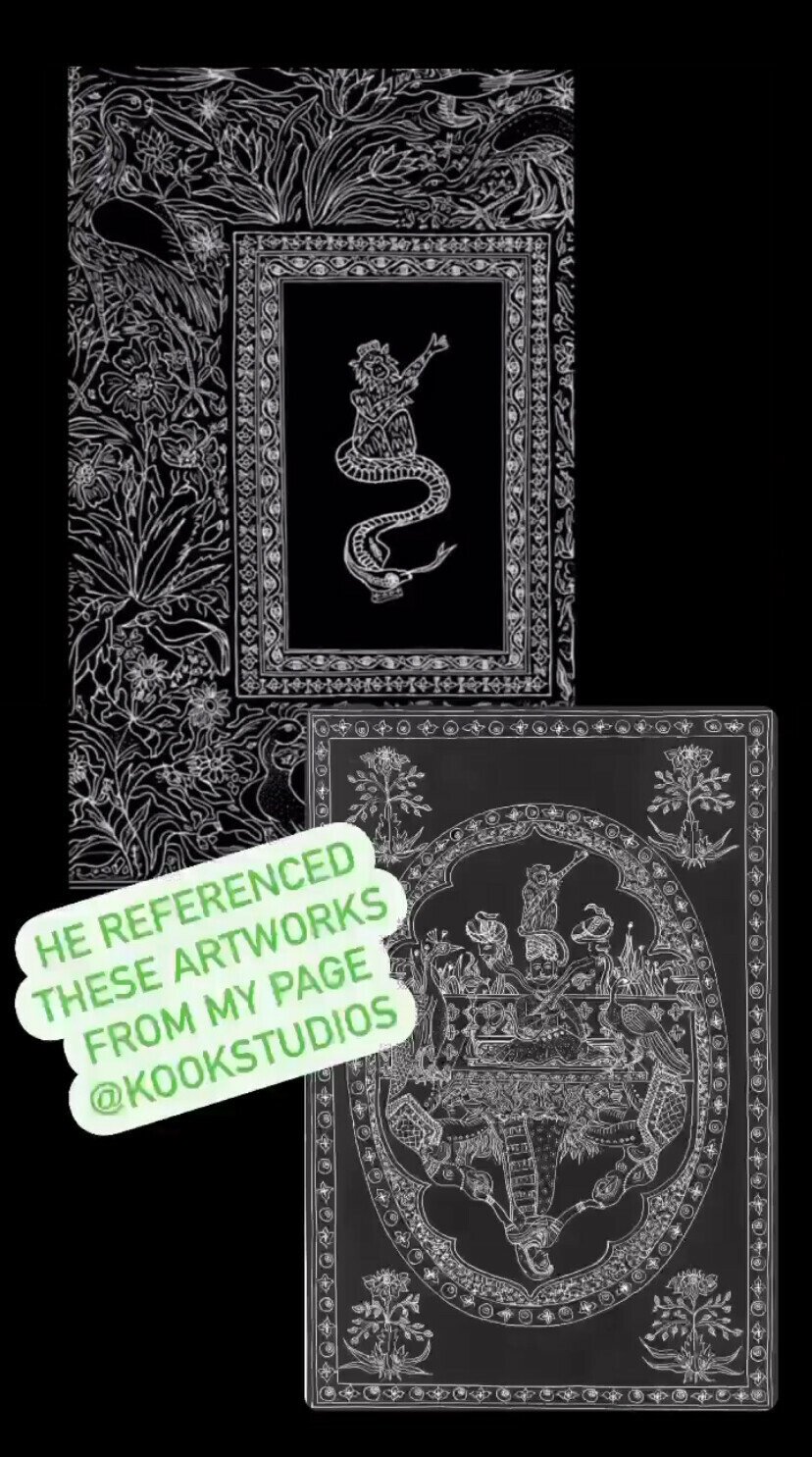
In response, Rehar took to his Instagram stories, vehemently denying the claims. He asserted that Jugnu drew inspiration from traditional African embroidery designs and was not influenced by any specific individual's work. Rehar attributed any communication lapses to project postponements and clarified that they were not indicative of ill intentions.
“We aim to clarify the Jugnu project and the recent discussions about its sources of inspiration. It's important to note that Jugnu did not draw inspiration from any specific individual's work. Any interruption in communication with a particular artist occurred due to a project postponement and not as a reflection of our intentions. Our outreach to artists has always been driven by a genuine desire for collaboration and creative exchange. If our intention had been to appropriate someone's work, we would not have initiated contact in the first place”
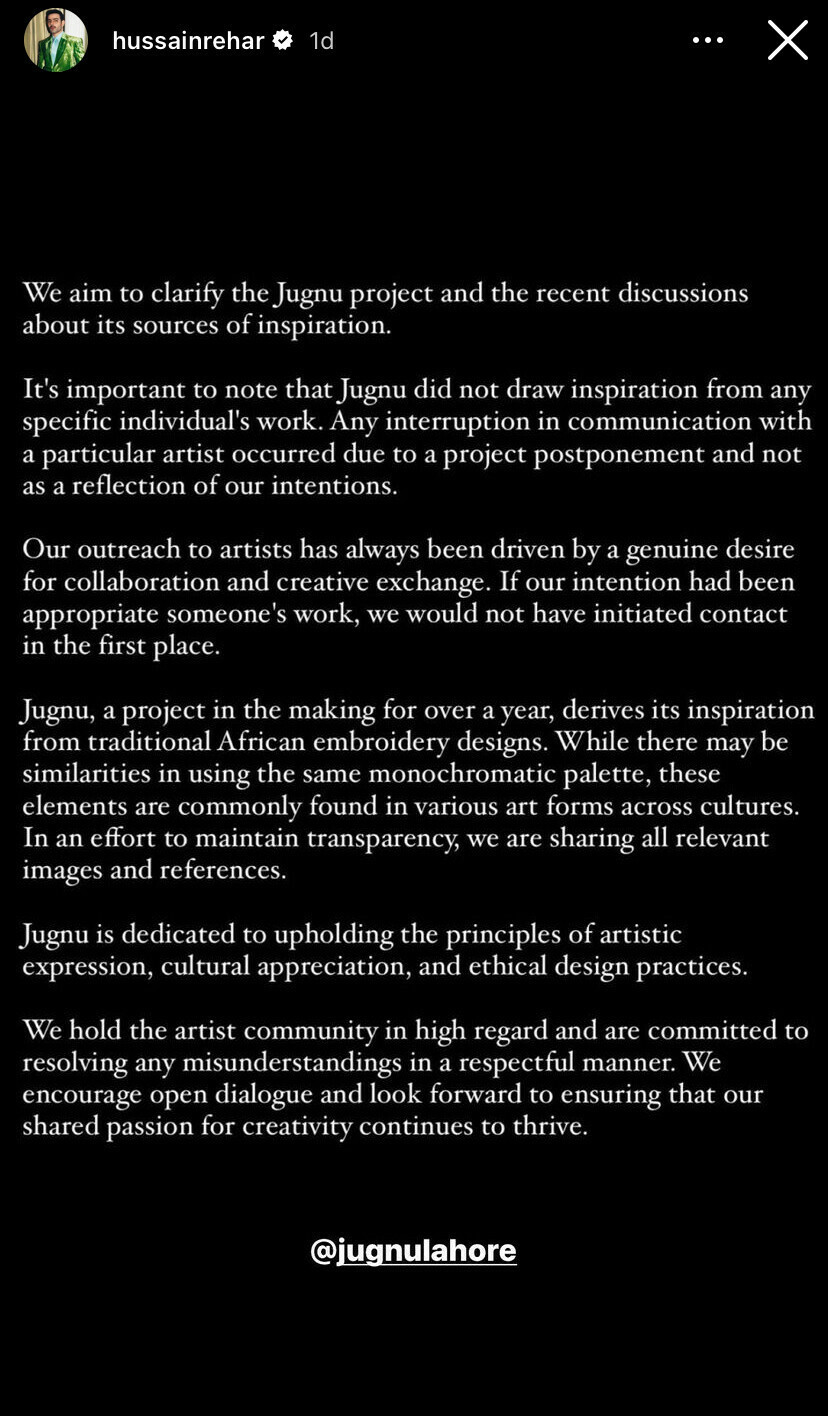
Rehar went on to add that Jugnu is a project that was in the making for over a year, and it derives its inspiration from traditional African embroidery designs. While both artists may have used a monochromatic palette, “these elements are commonly found in various art forms across cultures. In an effort to maintain transparency, we are sharing all relevant images and references.”
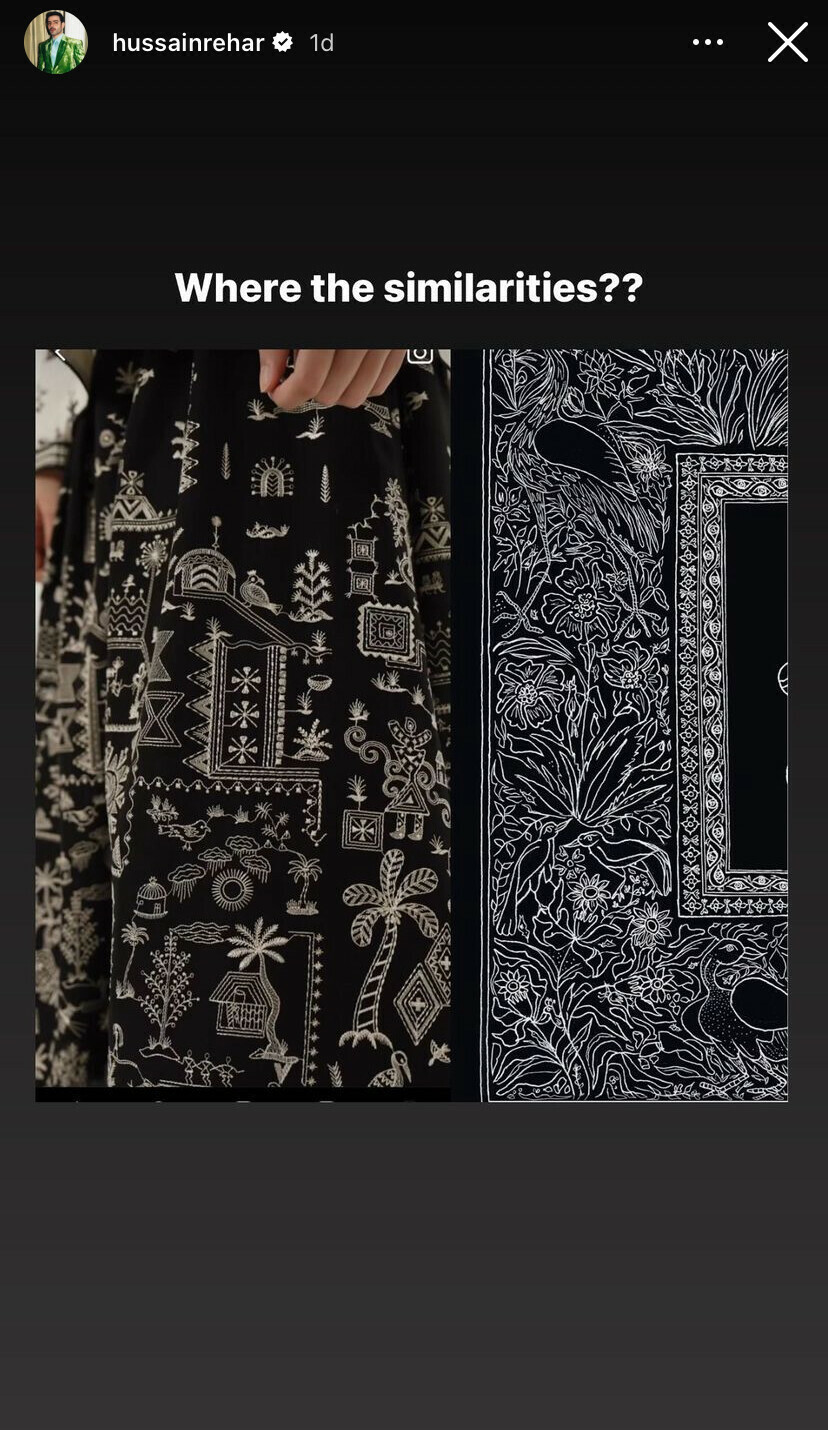
The designer assures that “Jugnu is dedicated to upholding the principles of artistic expression, cultural appreciation, and ethical design practices. We hold the artist community in high regard and are committed to resolving any misunderstandings in a respectful manner. We encourage open dialogue and look forward to ensuring that our shared passion for creativity continues to thrive.”
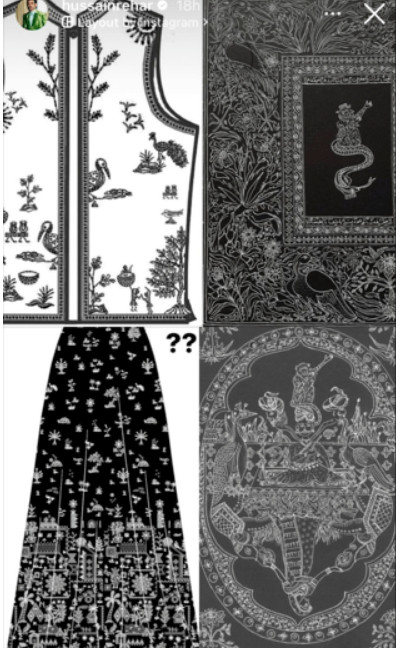
To support his stance, Rehar, too, posted images comparing Yazdani's work with the Jugnu line, highlighting differences where she highlighted similarities in design elements, spacing, and style.
However, since Yazdani’s claims surfaced, an online store named Jugnu Candles has also accused Rehar of copying their brand name and image for his Jugnu clothing line. The store revealed their attempt to address the issue with Rehar's representatives, alleging a lack of willingness to address the matter.
As the situation unfolds, it remains to be seen how Rehar addresses the accusations put forth by Jugnu Candles and how the fashion community and public will respond to these plagiarism allegations.



















COMMENTS
Comments are moderated and generally will be posted if they are on-topic and not abusive.
For more information, please see our Comments FAQ